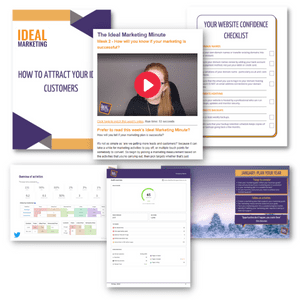In an article published on East Midlands Business Link, figures from a 2018 Deloitte survey demonstrate that only 45 per cent of executives are ‘confident in their own digital skills and ability to lead their organisation in the digital economy’.
With this is mind, surely it makes sense to look to specialist staff to deliver digital strategies, especially as figures from the survey show the majority of executives are planning on investing £10m in digital technologies and working methods by 2020. Furthermore, the article goes on to say that only 16 per cent believe their teams have the knowledge and expertise to successfully deliver digital strategies.
In addition, where investments in digital technologies such as AI have already been made, less than a quarter of executives are able to say their leadership team has a clear understanding of this technology.
Sounds a bit daft doesn’t it? The people who are trusted with a company’s budget and direction are investing in things they don’t necessarily understand or know how to use in order to achieve the best results. And they don’t even think they’ve got the right staff to make the most of it.
Actually, this sounds really familiar.
There are some strong parallels to digital marketing technologies here, which might make investing substantial amounts in AI despite not knowing exactly what to do with it, not seem so daft after all.
A new website is a good idea, isn’t it?
According to a report by Approved Index, introducing a business website can increase turnover by an average of £173,769. The report also forecasts that companies with 10-49 employees would see an increase in  revenue of £106bn per year by introducing a website ‘as part of their marketing strategy’.
revenue of £106bn per year by introducing a website ‘as part of their marketing strategy’.
The reference to marketing strategy is key here – it doesn’t say that just by simply launching a website alone, revenue will increase. Just like AI, almost anyone can be persuaded to buy into a website if the benefits and ROI are spelled out to them and backed up with research. However, just like AI technologies, unless you have a solid digital strategy for how you’re going to actually make the most of your website, you could be wasting your time and money.
New website sorted – job done
In the same way that simply having your AI technology delivered doesn’t mean it will start making you money, a successful website is not something that you can just cross off on your to-do list.
Yes, designing the site and making sure that all of the sections you want included are present and in the right place are really important, but once it’s looking good, you can’t just leave it alone and say it’s done. Actually – no, I’m wrong – you can do that, but you can’t then expect it to deliver a return on your investment.
Why is my website not making me money?
A successful website is regularly updated with current, relevant and specific information or products that your target market actually wants. Here are some examples to help explain why:
Example 1
A criminal law firm set up a website in 2008. It looks okay but the only information relating to drink driving is referred to under ‘careless driving’. At the time it was specific enough to cover a multitude of driving offences and seemed to do the job without spending too much time creating lots of pages and information. However today, partly thanks to the popularity of American crime shows on television, people in the UK are far more likely to use the term ‘DUI’ (referring to driving under the influence of alcohol) than they are to search using ‘careless driving’ in relation to finding a criminal defence solicitor when they need legal help.
In fact four times as many people are searching for the term ‘DUI lawyer’ on Google than ‘careless driving lawyer’ each month in the UK. Interestingly (and perhaps again due to Americanisms) whilst some people use the term ‘DUI solicitor’ in UK Google searches, Google’s data suggests that no-one uses the term ‘careless driving solicitor’ (considering ‘solicitor’ is English terminology and ‘lawyer’ is more commonly used in America).
Example 2
A company selling car products online had finally finished listing all of their products on their newly created website and considered this ‘job done’. After waiting a few weeks for the orders to roll in, they were pretty disappointed. It turned out the website could only be found online if you typed the exact website address into a search bar.
This meant that it wasn’t ranking on any search engines and so when people searched for a satnav for a specific car, despite it being listed on the company’s website, the website didn’t ever feature.
When looking at competitor websites that did feature in search results, the company found that their competitor’s product pages were far more detailed and included headings that used the product names. There were also images, reviews and links to recent blog articles that gave more in depth information about the products and how customers could get the most out of using them (these were also shared on several social media channels).
Who looks after your digital marketing?
Going back to AI, here are some job titles that companies are currently recruiting for:
- Machine learning engineer
- Robotic scientist
- Data scientist
- Computer vision engineer
- Artificial Intelligence architect
Baffling? Here are some more related to digital marketing:
- UX designer
- Mobile experience architect
- SEM planner
- Digital identity director
- CRO data specialist
In all honesty, I’ve picked the marketing ones because in the most part they’re slightly abstract (less traditional) and the majority of companies aren’t going to need to recruit all, if any, of these. My point is that it’s really important to make sure that the people looking after your digital marketing are specialists and have a clear understanding of how digital marketing works and what strategies to use to get the best results for your company.
Your readymade digital marketing team
At The Ideal Marketing Company we always strive to educate our clients in the power of marketing. We believe that if our clients understand what we are doing and why, they’ll better understand the value that we provide. For that reason, we don’t try to baffle anyone with jargon or to make what we do seem more complicated than what it is (including our job titles).







